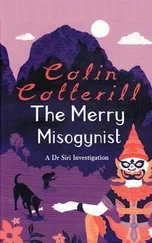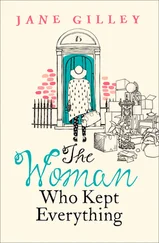Colin Cotterill - The Woman Who Wouldn't die
Здесь есть возможность читать онлайн «Colin Cotterill - The Woman Who Wouldn't die» весь текст электронной книги совершенно бесплатно (целиком полную версию без сокращений). В некоторых случаях можно слушать аудио, скачать через торрент в формате fb2 и присутствует краткое содержание. Жанр: Триллер, на английском языке. Описание произведения, (предисловие) а так же отзывы посетителей доступны на портале библиотеки ЛибКат.
- Название:The Woman Who Wouldn't die
- Автор:
- Жанр:
- Год:неизвестен
- ISBN:нет данных
- Рейтинг книги:3 / 5. Голосов: 1
-
Избранное:Добавить в избранное
- Отзывы:
-
Ваша оценка:
- 60
- 1
- 2
- 3
- 4
- 5
The Woman Who Wouldn't die: краткое содержание, описание и аннотация
Предлагаем к чтению аннотацию, описание, краткое содержание или предисловие (зависит от того, что написал сам автор книги «The Woman Who Wouldn't die»). Если вы не нашли необходимую информацию о книге — напишите в комментариях, мы постараемся отыскать её.
The Woman Who Wouldn't die — читать онлайн бесплатно полную книгу (весь текст) целиком
Ниже представлен текст книги, разбитый по страницам. Система сохранения места последней прочитанной страницы, позволяет с удобством читать онлайн бесплатно книгу «The Woman Who Wouldn't die», без необходимости каждый раз заново искать на чём Вы остановились. Поставьте закладку, и сможете в любой момент перейти на страницу, на которой закончили чтение.
Интервал:
Закладка:
‘I know. Her ol … ol … old name, Keopakam. That’s what he said. And it’s not good news, Comrade Doctor. Nnnot good at all.’
There were as many Daengs in Laos as there were tea leaves in China. As there were spin driers in Thailand. But Siri was a believer in fate and instinct. If Geung had sensed something, there had to be a negative current that passed into him from the Frenchman. Judge Haeng’s offer of a few days away, specifically mentioning Daeng, had to fit somehow into this karmic jigsaw puzzle. Siri had learned to his detriment that ignoring the fates was a terrible mistake.
‘Fancy a holiday?’ he asked his wife.
Daeng was sweaty and pink in the evening noodle rush. She leaned into the steam from the broth pot to swat away a persistent beetle.
‘OK. Madrid,’ she said.
‘I wasn’t actually offering you a choice of location.’
He held out the bowls as she gently scooped the noodles into the broth. Mr Geung took them from Siri and scurried off between the tables. It was as crowded as Paris St Germain in the rush hour but with no soundtrack. Great noodles left no room for conversation.
‘So, where?’ Daeng asked.
‘How do you fancy Pak Lai?’
‘Pak Lai, Sanyaburi?’
‘The same.’
‘What’s there to do?’
‘Boat races, beer, views, elephants, holding hands on a slow ferry upriver.’
‘When?’
‘Thursday.’
‘All right.’
‘Really?’
‘Yes. We’ll have to take Geung.’
‘We will?’
‘Of course. If we close the shop he’ll be bored and miserable. And we invariably need back-up.’
‘Why would we need back-up on a romantic cruise up the Mekhong?’
‘Because we wouldn’t be going if you hadn’t been handed some impossible task that will toss us higgledy-piggledy into the slow-burning furnaces of the devils.’
‘That was very poetic.’
‘Bowls.’
‘What?’
‘Hold up the bowls.’
‘Sorry.’
At the end of the early evening noodle shift Siri and Daeng partook of their late evening constitutional with Ugly trotting along behind. Siri was always aware of his wife’s condition but Daeng invariably insisted they take their sundown stroll. They admired the shimmering reflections of Thai street lights that reached across the river like beggars. They passed the locked confectioners where they paused and pretended to buy strawberry ice-cream cones. Then, as if by chance, they walked two circuits of the French embassy compound which took up an entire block. The couple’s instincts had different origins. Daeng’s the gut feeling of a fighter. Siri’s the subliminal screams and yelps from the beyond. But between them they were confident by the second lap that they had not been followed. They stopped beside the metal side gate on Rue Gallieni and Siri banged three times. For effect, he pretended to be tying his bootlaces as they waited. Daeng reminded him he was wearing sandals but he told her that from a spy blimp they’d not be able to see that clearly. The gate creaked open a slice and the couple slid inside the empty embassy.
France and Laos, you see, were having a ladies’ tiff. It was the ultimate porte-monnaie slap fest. The French embassy in Vientiane had apparently been urging the upper classes to leave the country. Visas had been as easy to come by as tropical ulcers. In France, a Lao government in exile was being encouraged — if not openly supported — by the anti-communists. To the Pathet Lao administration this was starting to look a lot like the tacit support of a coup d’etat . All the staff at the Vientiane embassy, including diplomats, had been banned from travelling further than three kilometres from the embassy compound. The French retaliated by restricting the Lao staff of their embassy in Paris to a three kilometre perimeter. This troubled the Lao more than the French as three kilometres from the Vientiane embassy was little more than rice fields, whereas the ban left the Lao diplomats as prisoners in the extortionately expensive inner suburbs of Paris. The Pathet Lao refused to accept any new diplomatic postings so the French closed their embassy and took their tricolour home. Thus the embassy compound, the zero kilometre mark for all road distances from Vientiane, became a ghost town.
Monsieur Seksan, the embassy caretaker, beamed and shook the hands of his visitors. He was a solid Lao with a fine paunch nurtured over thirty years of employment with the French civil service in Paris. He’d arrived in Europe aged two and naturally didn’t have too many memories of his homeland, fond or otherwise. He’d spoken Lao at home with his nurse but was raised and educated a Frenchman. Despite claiming a first-class degree in law and having French citizenship, the man had been overlooked for promotion so many times he’d come to believe that nothing short of plastic surgery would put him on the diplomatic fast track. At first, when the foreign service had called him aside and offered him a posting at the embassy in Vientiane, he’d had ambassadorial flutterings. When he found out all the French embassy staff had been recalled in protest and that he’d be bouncing around like a single pea in a pod, he was not amused. In fact, he was pissed off.
Dr Siri was an acquaintance of Monsieur Seksan’s father. They’d studied at the temple together. The young man had made contact as soon as he’d arrived in his alien homeland. His Lao was raw and his knowledge of Laos was fundamental, but Siri had welcomed the boy warmly. They drank together often. And in Siri, Monsieur Seksan found a man he could trust and he told him all his frustrations. So, it was only to be expected that when Siri sought refuge for Lao citizens who were being persecuted by the socialist doctrinaires, Seksan said he would be delighted to help. They’d arrived late one night, eleven of them. They were no trouble and had even brought their own instant noodles. In fact Seksan enjoyed the company. One of the refugees, a young lady recently returned from a failed venture in Thailand, had become particularly close. The embassy compound had turned into a village and Seksan was the headman. He had a real Lao family and was, day by day, strand by strand, discovering his roots.
‘How’s the team?’ Siri asked.
‘They’re keeping me sane,’ said Seksan.
He gave a respectful nop to Daeng who patted his cheek in response.
Technically, Siri’s eleven refugees could have had a residence each in the sprawling compound. There were some twenty buildings including staff cottages and administration offices. In many of them the furniture was shrouded in dust covers dotted with mouse and lizard droppings like huge lumps of chocolate-chip vanilla ice cream. But the team preferred to bunk together in the visitors’ dormitory rooms, a bungalow which had at one time housed the French horses. Mrs Fah’s children, Mee and Nounou, were the first to spot Uncle Siri and Auntie Daeng. They sounded the alarm with their screams. Their mother followed with her two nieces recently returned from an unsuccessful spell across the river working as karaoke hostesses. Both Gongjai and Tong were adamant that the Japanese craze would never catch on. The blind beggar, Pao, and his granddaughter, Lia, were there as was Comrade Noo the ostracized Thai forest monk. Uncle Inthanet, a man of Siri’s age, had not yet appeared but he’d found himself a girlfriend half his age and they spent a good deal of their time ‘discussing’ behind a closed door. Then there was the latest inmate, a tall, skinny middle-aged woman who could not remember her name. She had been walking aimlessly around the town for a week before Daeng confronted her and asked her where she was going. She could not remember that either. She carried no identification so Siri had taken her in and was waiting for the fog to clear.
Читать дальшеИнтервал:
Закладка:
Похожие книги на «The Woman Who Wouldn't die»
Представляем Вашему вниманию похожие книги на «The Woman Who Wouldn't die» списком для выбора. Мы отобрали схожую по названию и смыслу литературу в надежде предоставить читателям больше вариантов отыскать новые, интересные, ещё непрочитанные произведения.
Обсуждение, отзывы о книге «The Woman Who Wouldn't die» и просто собственные мнения читателей. Оставьте ваши комментарии, напишите, что Вы думаете о произведении, его смысле или главных героях. Укажите что конкретно понравилось, а что нет, и почему Вы так считаете.












